Are you ready to unlock the potential of knowledge sharing in your organization? In today's fast-paced world, leveraging collective expertise can drive innovation and foster collaboration amongst teams. By creating an environment where ideas flow freely, you empower individuals to learn, grow, and contribute more effectively. If you're curious about how to implement a knowledge-sharing framework and its benefits, keep reading!

Subject line clarity
A well-crafted subject line for a knowledge sharing proposal should convey a clear purpose and encourage engagement. Effective subject lines might include specifics about the topic, such as "Enhancing Team Collaboration: Proposal for Knowledge Sharing Sessions," or "Invitation to Participate in Cross-Departmental Knowledge Sharing Initiative." Highlighting the benefits, such as "Unlocking Innovation: Join Our Knowledge Sharing Proposal" or mentioning the intended audience, like "Empower Your Team with Our Knowledge Sharing Framework," helps in quickly informing recipients about the content and significance of the proposal. Numeric indicators of expected outcomes or session dates can also enhance clarity, for example, "Monthly Knowledge Sharing Sessions: Aiming for 25% Growth in Team Efficiency." Engaging language and a focus on benefits ensure that the subject line stands out in crowded inboxes.
Purpose statement
A knowledge-sharing proposal aims to facilitate effective communication, collaboration, and innovation within organizations or communities. This initiative encourages participants to share expertise, experiences, and insights to enhance collective learning. By establishing structured platforms such as workshops, webinars, or discussion forums, individuals can engage in meaningful exchanges that foster personal and professional growth. The goal is to create a culture of continuous improvement and knowledge retention, ultimately leading to increased efficiency and productivity across departments or teams. This approach can significantly benefit industries like technology, healthcare, and education by promoting a diverse array of perspectives and ideas.
Target audience
Knowledge sharing initiatives can greatly enhance collaboration between teams, particularly in organizations that prioritize continuous learning and innovation. These initiatives target various audience segments such as employees, managers, and stakeholders, each requiring tailored content. For employees, workshops and seminars can encourage skill development in areas such as project management and communication. Managers may benefit from interactive sessions focusing on leadership practices and team dynamics, enabling them to foster a more cohesive work environment. Stakeholders, including partners and clients, can be engaged through informative presentations and strategic briefings highlighting industry trends and collaborative opportunities. By considering the specific needs and interests of each target audience, organizations can maximize participation and drive impactful knowledge transfer.
Benefits and value propositions
Knowledge sharing initiatives in organizations foster collaboration among employees, promote innovation, and enhance overall productivity. Such initiatives can lead to significant cost savings, estimated at 20-30% in certain tech companies, by reducing redundancy in efforts and capitalizing on existing expertise. The implementation of knowledge-sharing platforms, like internal wikis or collaborative software, can enhance employee engagement, with studies indicating that engaged employees are up to 40% more productive. Furthermore, sharing knowledge accelerates onboarding processes for new hires, decreasing ramp-up time by an average of 50%, ensuring that they become effective contributors more quickly. By creating a culture of sharing knowledge, organizations benefit from improved employee morale and retention rates, as 76% of employees find value in working for companies that prioritize professional development and open communication.
Call to action and next steps
A knowledge sharing proposal aims to foster collaboration and enhance learning within an organization. Implementing structured sessions will encourage team members to share insights, experiences, and best practices, ultimately leading to improved performance and innovation. To kick off this initiative, it is imperative to organize an introductory meeting where potential participants can discuss topics of interest and outline their expertise. Designate a platform for sharing materials and discussions, such as a dedicated section on the company intranet. Set a recurring schedule for knowledge sharing sessions, ideally monthly, to maintain momentum and engagement. Collect feedback to continuously improve the program, ensuring that it meets the evolving needs of all involved.
Letter Template For Knowledge Sharing Proposal Samples
Letter template of collaboration request for knowledge sharing initiative
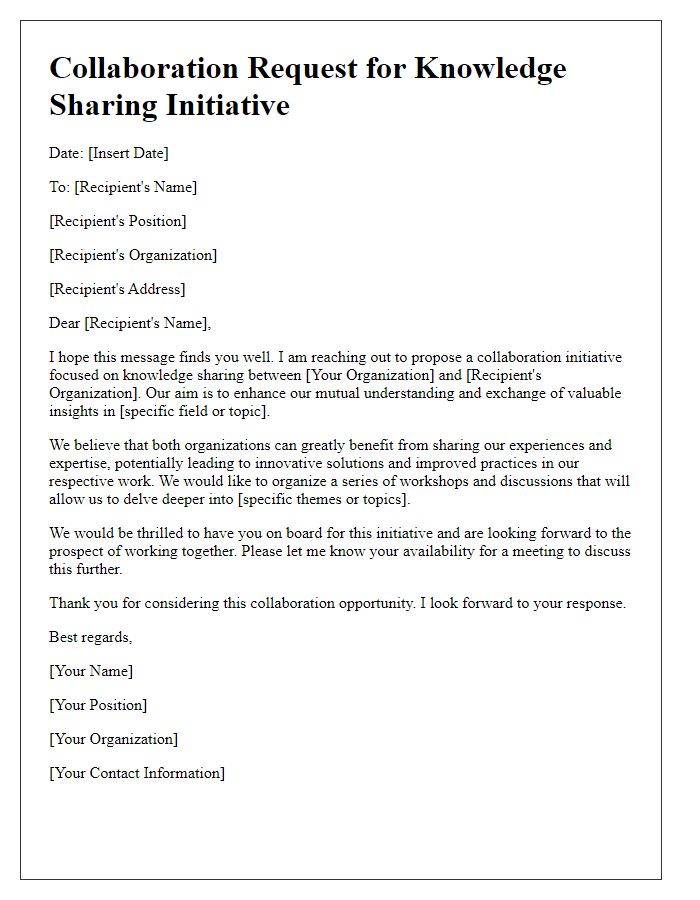
Letter template of invitation to contribute in knowledge-sharing workshop
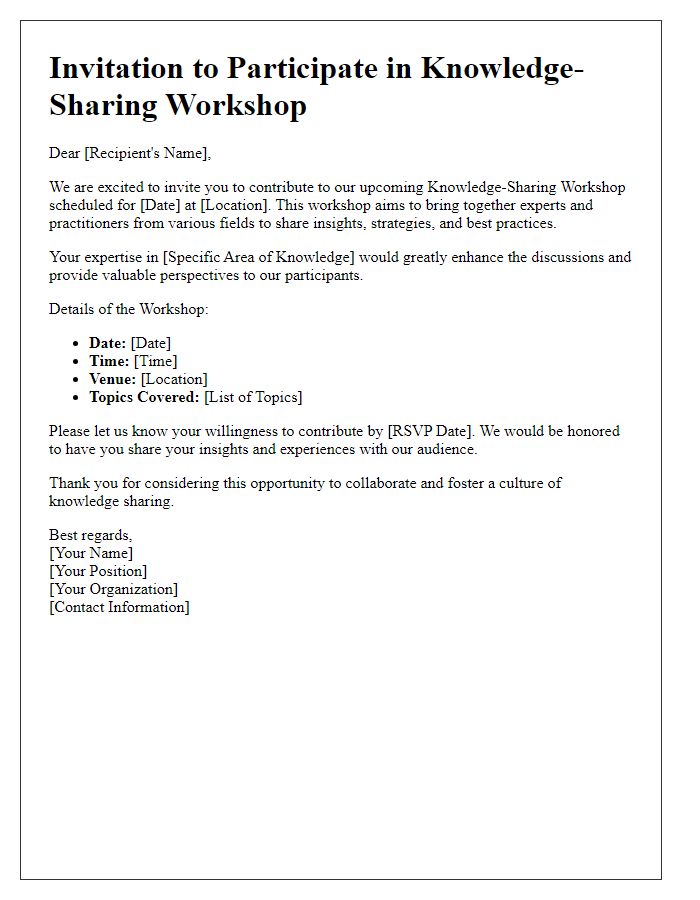
Letter template of initiative outline for cross-departmental knowledge sharing
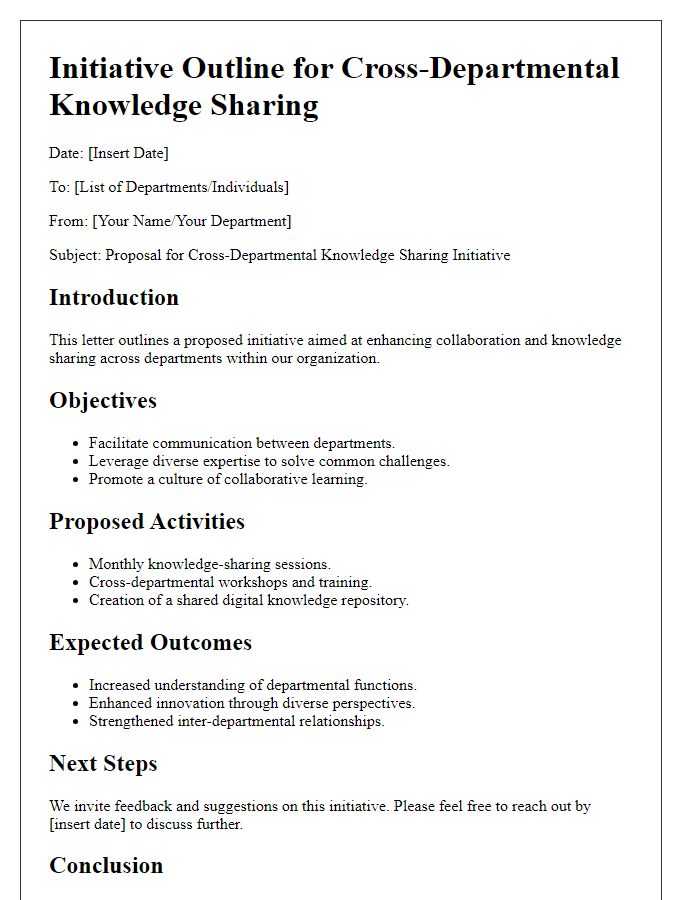
Letter template of proposal for mentoring and knowledge exchange program
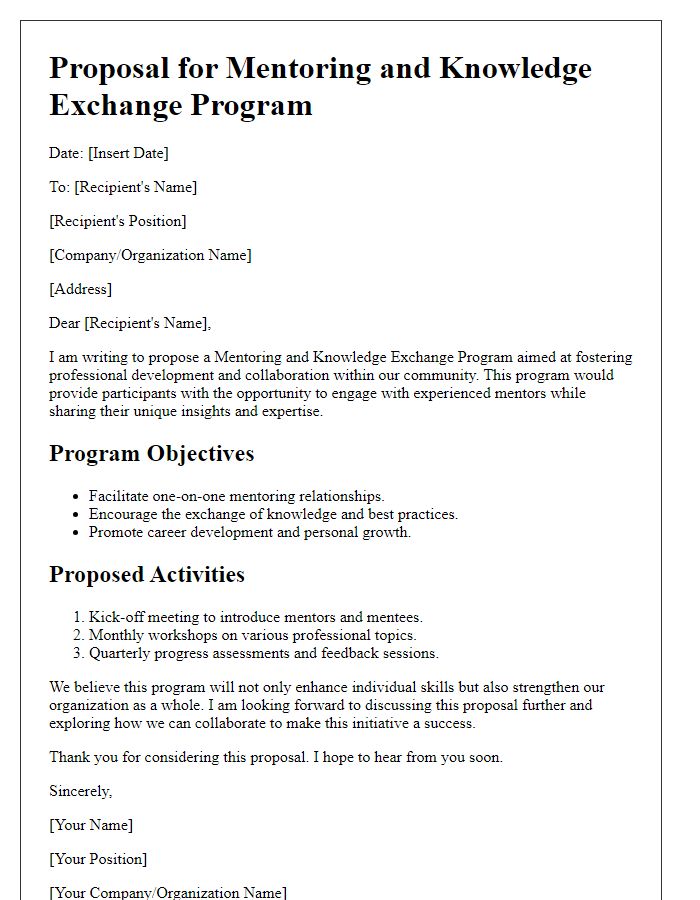
Letter template of suggestion for knowledge-sharing best practices meeting
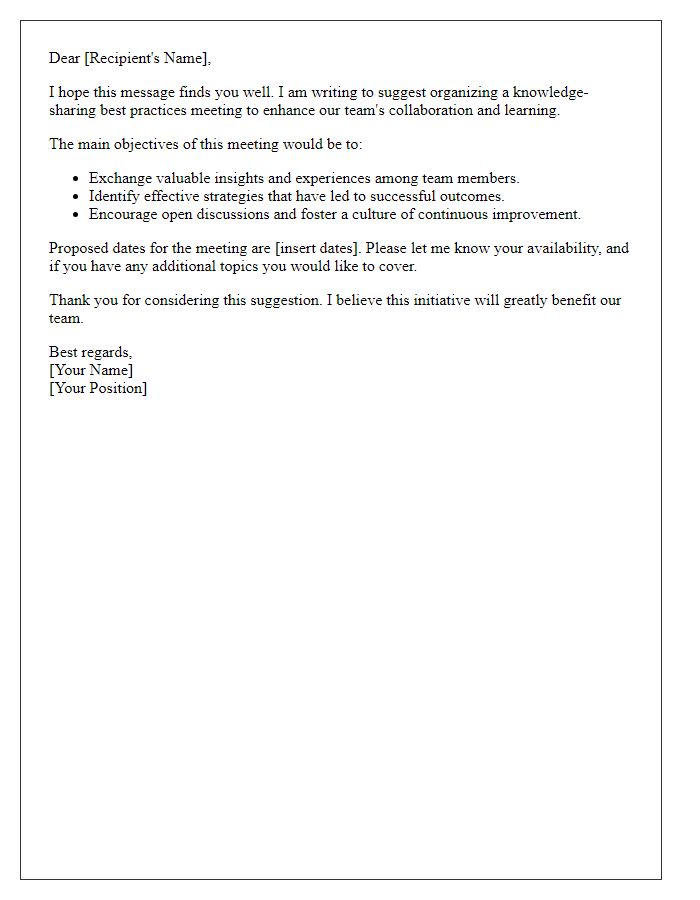

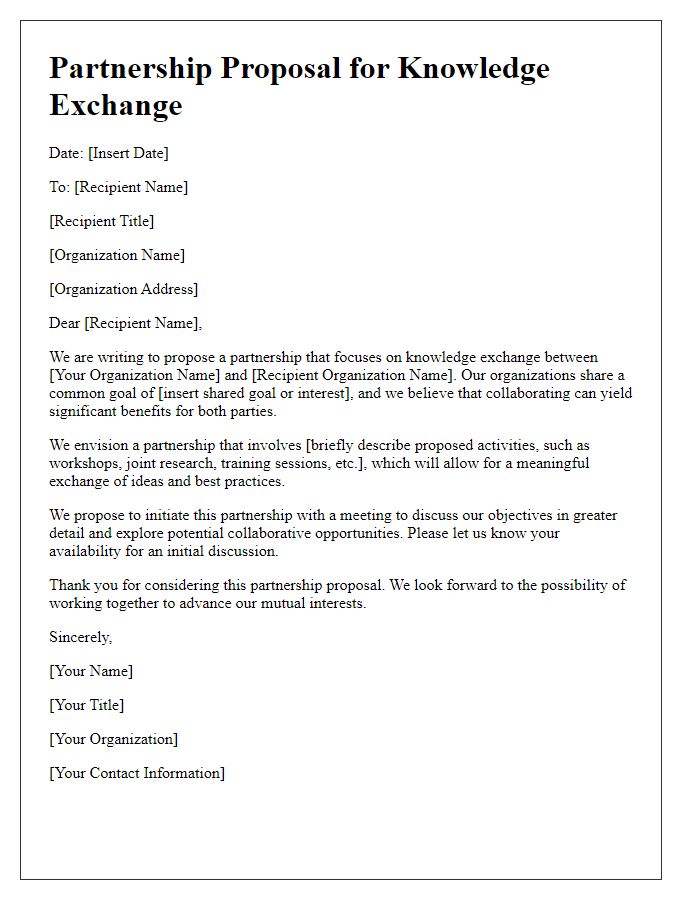
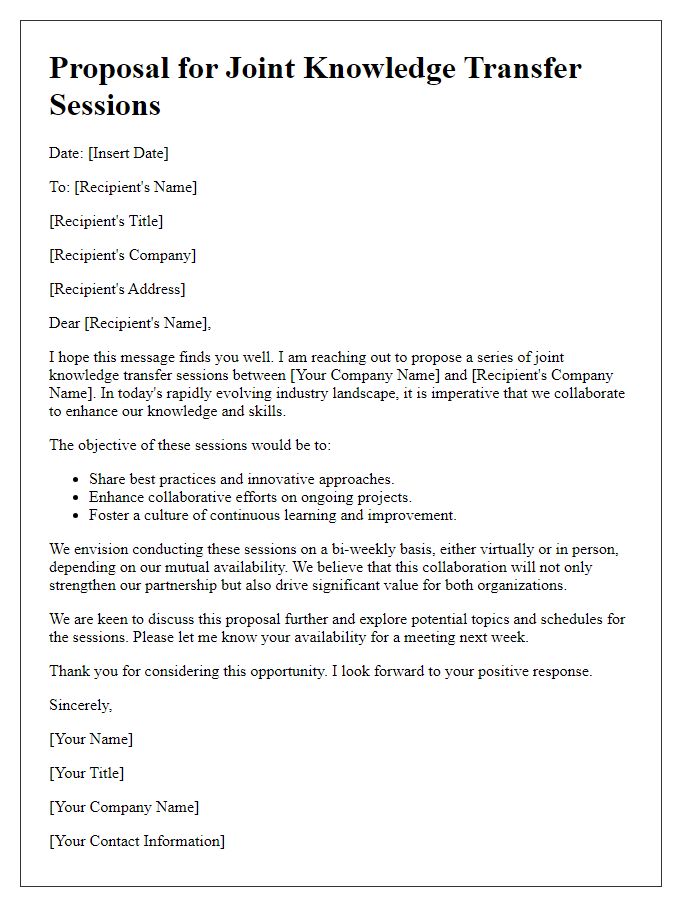
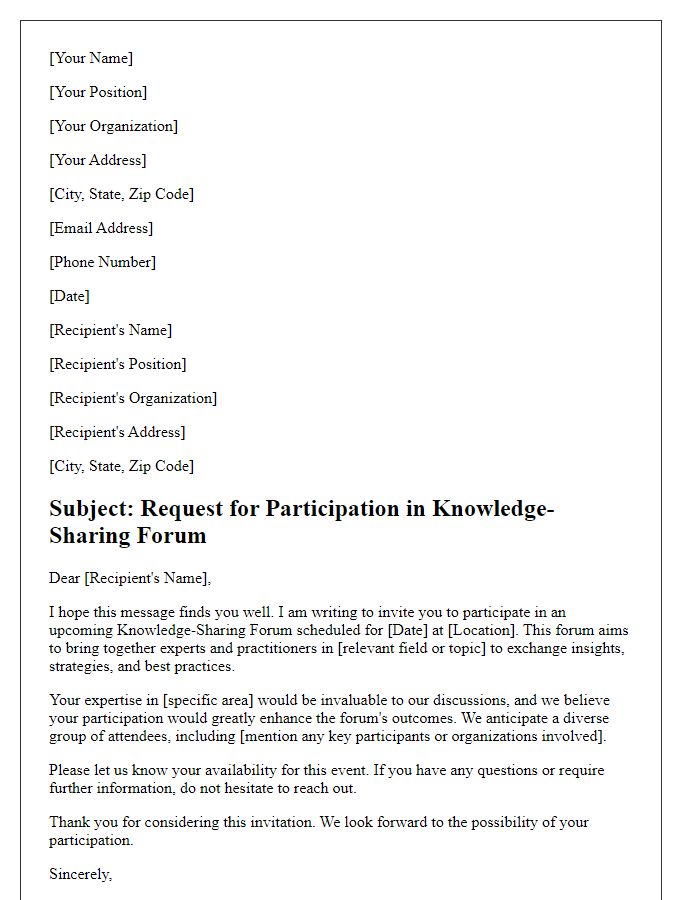
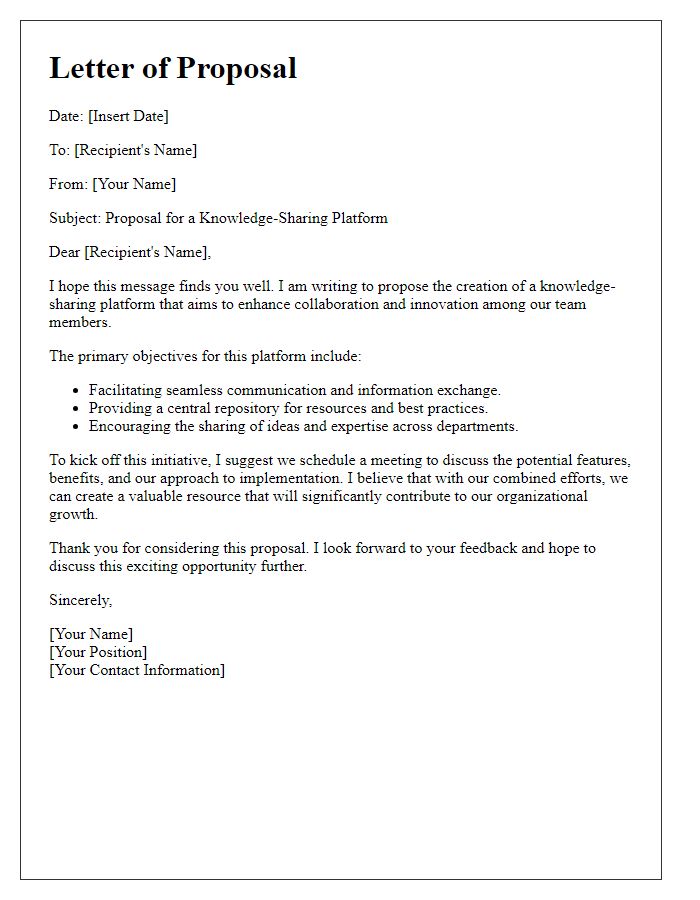
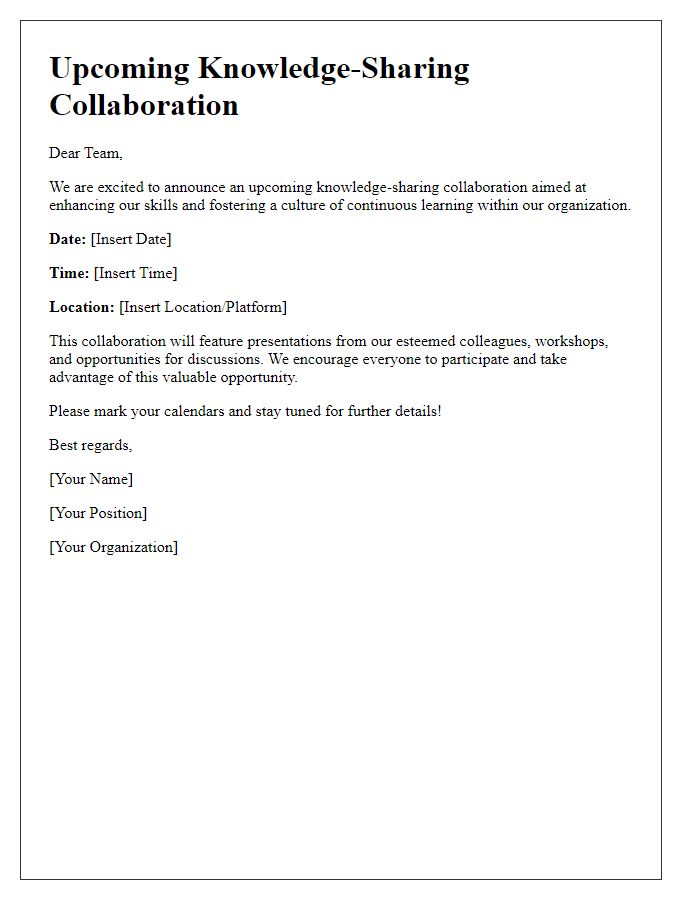


Comments